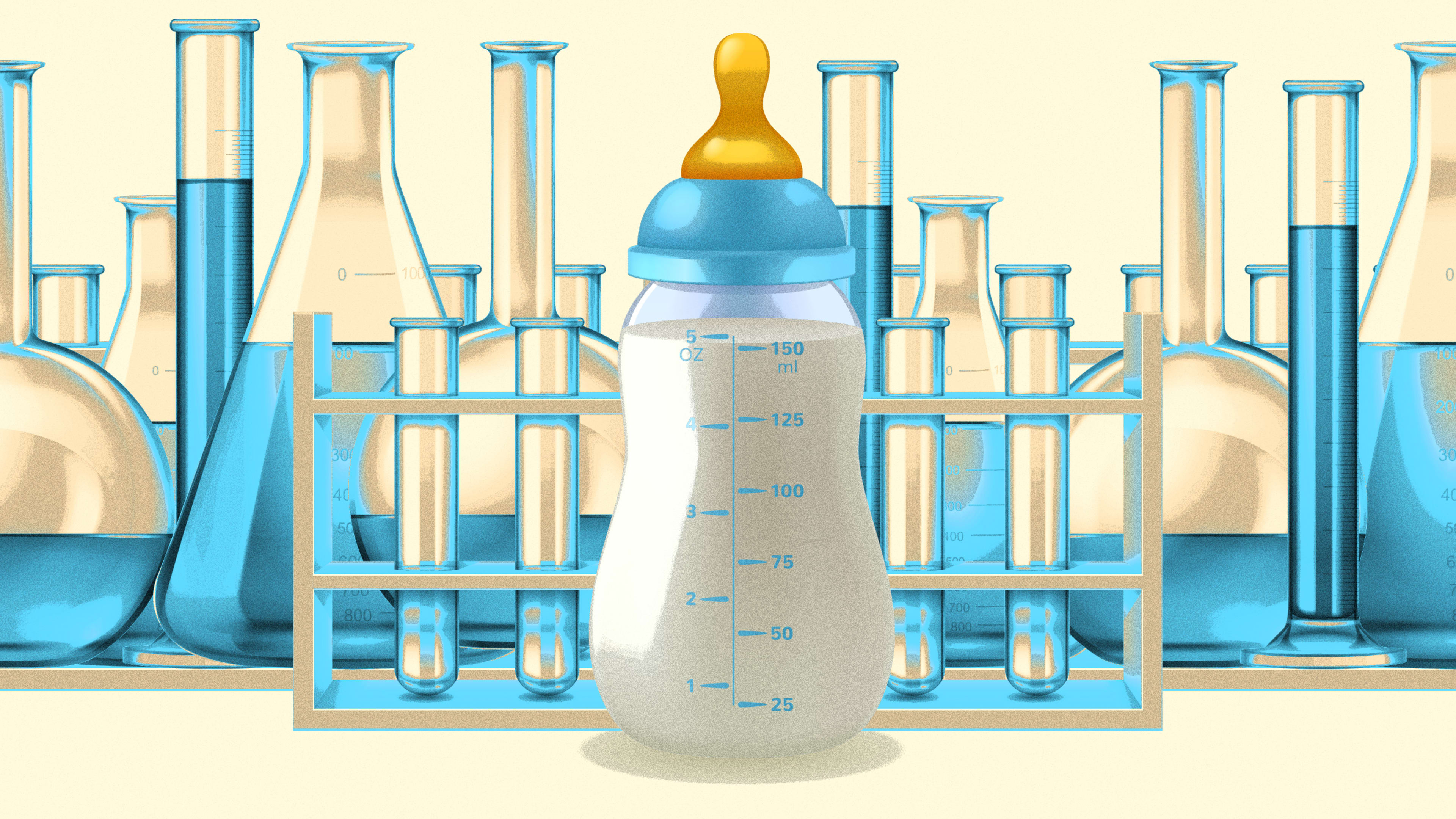First came the prototypes of lab-grown burgers and lab-grown Wagyu beef (or, as the industry calls it, “cultured” meat.) Then came ice cream made with lab-grown dairy proteins. Now, a handful of startups are working on lab-grown breast milk.
Last week, a five-month-old startup called Biomilq announced that it had succeeded in growing two key components found in human milk—lactose and casein—from mammary cells in a bioreactor. They’re looking for a solution to a widespread problem: Breastfeeding is linked to healthy development in children, but the majority of mothers aren’t able to breastfeed for some, if not all, of the recommended six months. Formula, made with nonhuman proteins that can be harder for babies to digest, is an imperfect alternative.
“Whether it’s low milk production, incompatible workplaces, or the ongoing stigma around breastfeeding in public, families feed infant formula out of necessity rather than preference,” Biomilq’s founders, Leila Strickland and Michelle Egger, wrote on Medium. “Parents and caregivers are left with suboptimal choices, and they want an option that doesn’t force a trade-off between babies’ nutrition and mothers’ well-being.”
Whether mothers embrace the idea of bioreactor-grown breast milk is another question. But Strickland, a cellular biologist who had difficulty breastfeeding her own two children when they were born prematurely, saw the potential, and began working on the technology on the side. Egger, a food scientist who is currently working on an MBA at Duke University, became interested after spending a summer working with the Gates Foundation researching plant-based protein sources for lower-income countries and recognizing the challenges for nutrition in infants. The two met last summer and quickly began collaborating to bring a product to market.
Growing mammary cells outside of the human body actually isn’t new—the process is already used in breast cancer research, and researchers knew that those cells could produce milk. But the startup has developed a crucial process to separate the milk from the liquid media used to grow the cells. Inside their bioreactor, they have around the same amount of cells as are found in a mammary gland. (This is very different from the approach of Perfect Day, the company making growing dairy proteins to make ice cream, which uses microbes to grow isolated proteins from cow milk.)
While Biomilq has already proven that they were able to produce key components of breast milk, they’re aiming to replicate it as closely as possible. “The special thing about milk is its molecular complexity,” Strickland told a writer at New Harvest, a research institute focused on cellular agriculture and cultured animal products. “It’s got a constellation of components that all need to be there at optimal levels in order to support the growth of the human infant, as designed by 200 million years of evolutionary pressure. And so we think that in order for something to be nutritionally equivalent to breast milk, the complexity needs to resemble what we see in actual breast milk.”
It won’t have some properties of breast milk, such as antibodies that come from the mother—and breastfeeding likely will have other advantages, both nutritionally and in helping babies bond with their mothers. Still, Strickland argues that it will be “vastly nutritionally superior to infant formula and will offer women a way of feeding that’s nutritionally much better for their babies, and quite a bit more realistic for them.”
Another startup, Singapore-based TurtleTree Labs, plans to make an announcement about its lab-grown breast milk this spring. A New York-based startup, Helaina, is also working on a related product. It’s likely to be very challenging for companies in this space to get regulatory approval for food for infants, says Isha Datar, executive director of New Harvest. But it could potentially lead to broader changes in the human diet. “I think it opens up questions like, would adults start drinking human milk now?” she says. “And what are the opportunities here? How does this disrupt our approach to cow’s milk as a way to feed infants?”
Recognize your brand’s excellence by applying to this year’s Brands That Matter Awards before the early-rate deadline, May 3.
